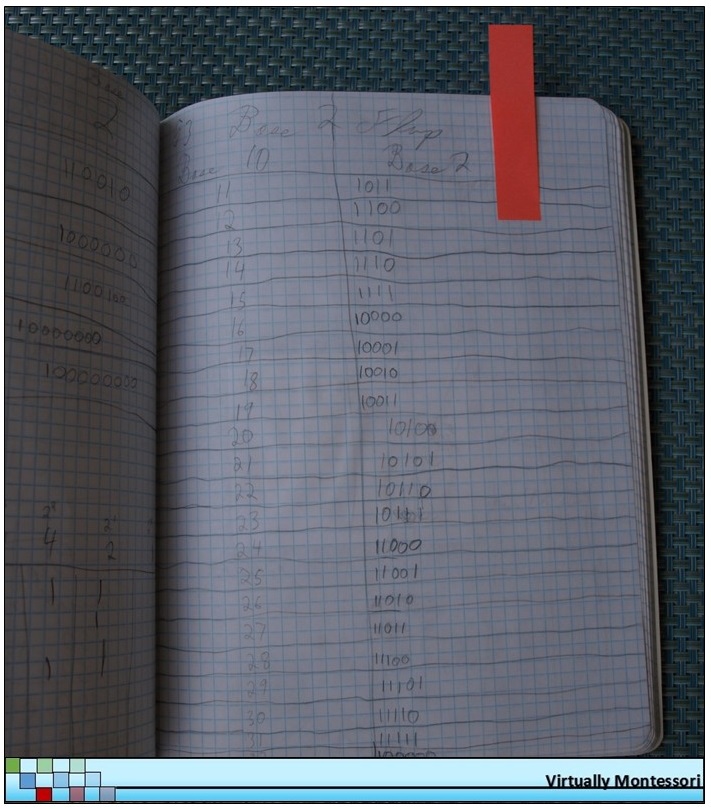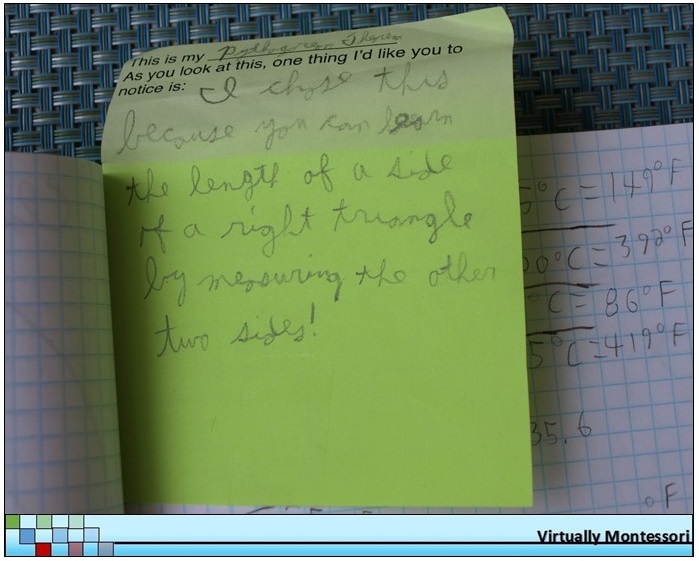Continuing from the last post about prepping for student – parent – teacher conferences, I wanted to also share a few more steps in our process, including how students chose pieces of work to show to their families, the role of students in the conferences, and more. Just as with the self-assessment, some preparation ahead of time makes conference days run much more smoothly!
To introduce choosing work to share, we had a whole group discussion with the children about picking either a favorite lesson or piece of work they were most proud of to show in each of the following areas – math, language, and cultural (history and science). Once they found the work, they were to mark it with a sticky note (tip: cutting sticky notes into smaller strips will make them go much further!). Instead of a sticky note, pre-made bookmarks could be used that prompt children to describe something they’d like you to notice about the work, why they’re proud of it, or what they learned from that lesson (see example in the second photo below).
Most of the work the children have done in class was kept in composition books, which made tracking down specific items pretty easy. They were given a chunk of time to peruse their notebooks and see what items they wanted to share. It was fun to see how children handled this process – some immediately thought of the lesson they wanted to use while others paged meticulously through their notebooks to identify what to mark.
Students reviewed their self-assessments a day or so before conferences, making sure they read teacher remarks (that had been added since they last saw these sheets). This exercise was helpful so there were no big surprises during the conferences.
Prior to conference days, we made copies of the students’ self-assessments so that we could give a copy to parents to take home. On their meeting day, students were asked to gather their marked notebooks and set them in a designated spot, so when each family arrived at their conference time, all materials were ready to go.
During the actual meetings, students played a leadership role, discussing their strengths and weaknesses, their assessment of their behavior, and their sample work. Most children used their strengths and weaknesses self-assessment form as a script to guide the conversation. Teachers also added their observations and opinions of strengths, weaknesses, and behavior as it came up in the course of the discussion.
I think that having children involved in preparing for and participating in conferences at the upper elementary level makes sense. The students are old enough at this age to be able to discuss their performance, show what lessons have been most meaningful to them, as well as hear and respond to both compliments and constructive criticism.
I’ve realized that preparation well ahead of time helps the student-parent-teacher conferences run pretty efficiently. Allocating dedicated time over the course of a few days for children to prepare not only sets the children up for success in their conferences, but also alleviates some stress and last-minute work for teachers, making these important meetings days more enjoyable for all.
Do you have student-parent-teacher conferences? If so, what role do the children play in prepping for your conferences?



